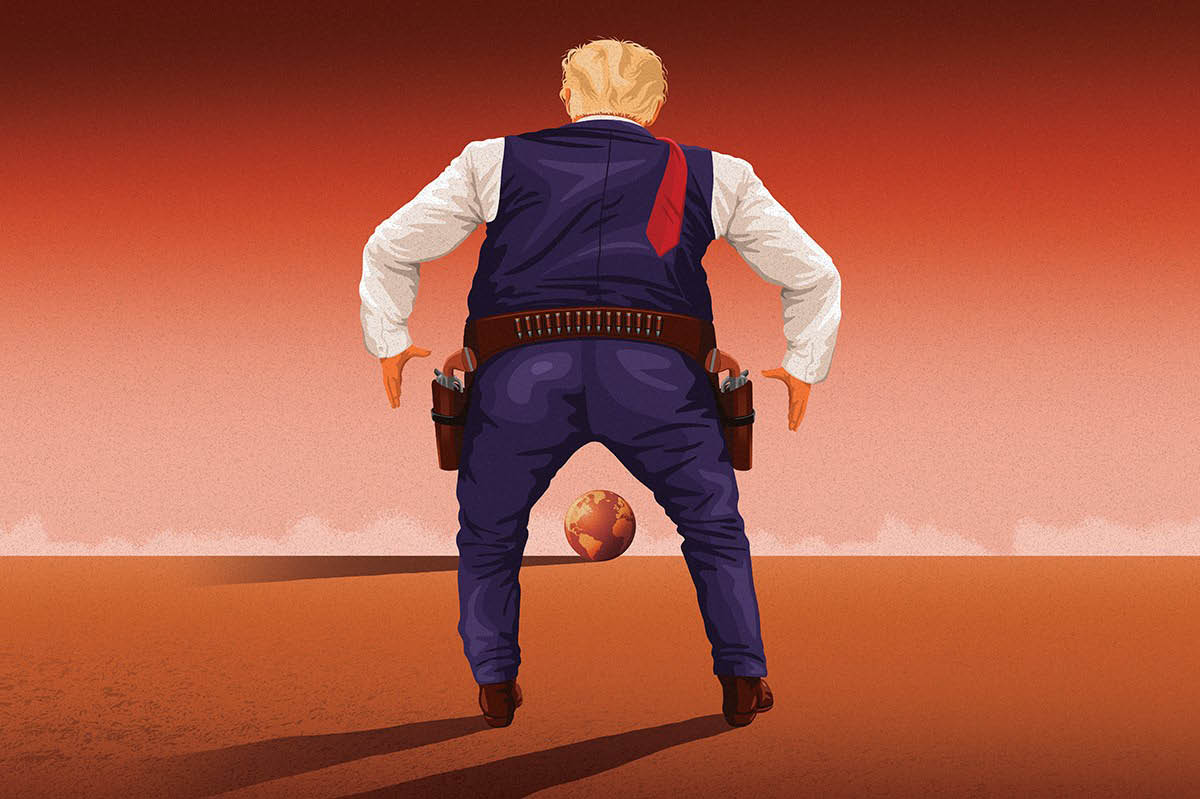Recriminations Confound the Debate about the Democrats’ Defeat in the US*
(Brazil) on 11/20/2024
by Lúcia Guimarães (link to original)
The deceased was not buried, and already a fight between the heirs exploded. While Kamala Harris spoke, conceding her defeat on Nov. 6, Sen. Bernie Sanders vehemently attacked the Democratic campaign. Sanders, an independent who was once part of the Democratic Party and still votes with them, said that Harris’ loss was no surprise because the party had abandoned the working class and spoke too much about race and sexual orientation.
Workers formed the Democratic base until the1990s when, under Bill Clinton, the United States formed NAFTA, a treaty of free trade with Mexico and Canada. NAFTA is now the bogeyman in the exchange of accusations about the triple Democratic defeat this year. At 30 years old, the accord is the epitome of globalization and is frequently cited by veteran Democrats as the original sin in the alienation of the working class.
According to an old, apocryphal adage, questionably attributed to John Steinbeck, author of “The Grapes of Wrath, “Socialism never took root in the country, because American workers see themselves not as an exploited proletariat, but as temporarily embarrassed millionaires."
The quote illustrates economists’ arguments about American social mobility, who don’t think it is viable to implement a class-based political agenda in this country, where 59% of high-income Republicans identify as workers and more than half of the general population say they belong to the middle class.
In the wave of instant analyses that have dominated political commentary, the Democrats’ other enemy would be identity politics. In the confused stages of grieving the recent defeat, centrists and parts of the left once again suggested there is a “Sophie’s choice”** between privileging economic class and human rights.
Of the 51 presidential elections in the past 200 years, Donald Trump is 44th in terms of the popular vote’s margin of victory. At the moment, he is below 50% of the votes, receiving 49.89% against 48.24% for Harris. Thus, Trump returns to the White House with the votes of 30% of adults, which is not unusual in this country in which voting is not obligatory.
In 2016 and 2020, no Democrat won election to the Senate in a state where the Republican had won the top of the ticket. This year, four Democratic senators took states in which Trump won, which suggests a reduction of the “Trump effect.”
In the House, the Republican majority, even with three seats yet to be decided, will be the smallest since the decade of the 1950s, when the U.S. had 50 states. It is undeniable that the ballots show a demographic realignment. But, in numbers, the Republican victory does not reflect an overwhelming mandate.
The wave of recriminations which dominates the political debate, beyond consuming oxygen which would be better used confronting the ongoing tsunami of authoritarianism, ignores a decisive factor, the capture of social media by the far right, not just with Elon Musk’s interference.
Americans, with their diet of poor information, went to the polls nourished by a parallel apocalyptic reality about inflation, crime, immigration and transgender people. The octogenarian Sanders does not offer a strategy for this scenario.
*Editor’s Note: This article is available in its original language with a paid subscription.
**Editor’s Note: “Sophie’s choice,” the title of a novel of that name by William Styron, has come to mean having to choose between two equally deserving, or horrifying, alternatives.


